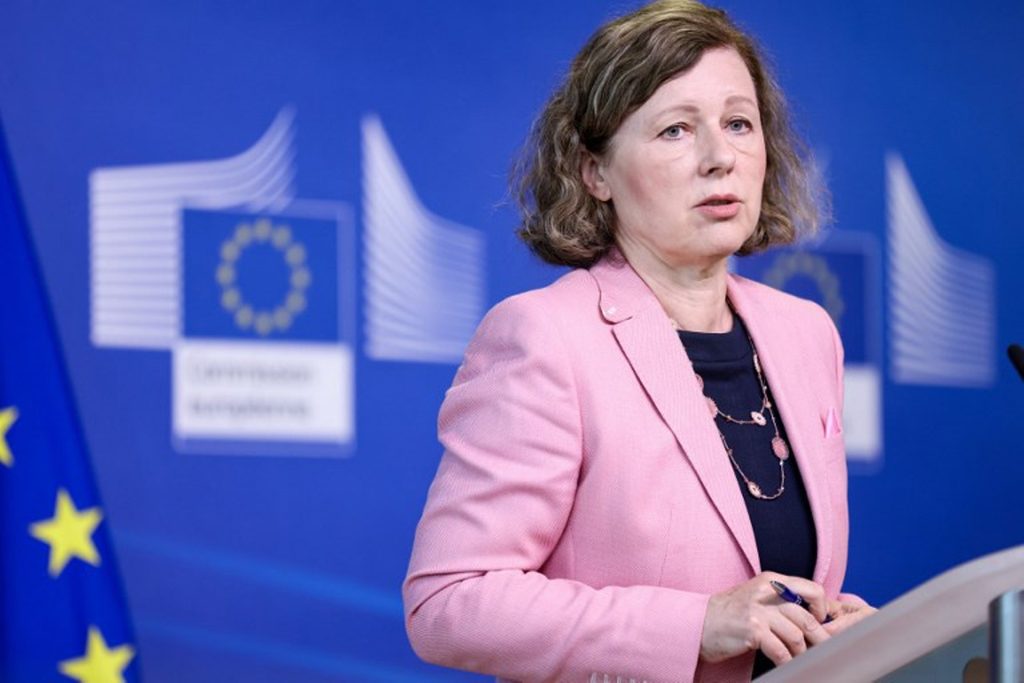Twitter has chosen "confrontation" by deciding to leave the EU's code of good practice against online disinformation, European Commission Vice-President Věra Jourová lamented on Monday.
Ten days ago, the Commission announced that the US social network, owned by Elon Musk, was withdrawing from the voluntary code, launched in 2018. The code contains around 40 commitments aimed in particular at cooperating better with fact-checkers and sanctioning sites for disseminating fake news or advertising.
"We believe this is a mistake on the part of Twitter. Twitter has chosen the hard way. They chose confrontation," Jourová, who is responsible for values and transparency at the Commission, told the press.
In addition to the voluntary commitments currently in place, the fight against misinformation will become a legal obligation under the Digital Services Act (the European law on digital services), which comes into force on 25 August.
Vigorous and urgent scrutiny
If Twitter "wants to operate and earn money on the European market, it will have to comply with the law on digital services," Jourová insisted.
"The code is voluntary, but make no mistake: by leaving the code, Twitter has attracted a lot of attention, and its actions and compliance with European law (DSA) will be scrutinised vigorously and urgently," she warned. "The European Union is not a place where we want to see Californian laws imported."
Twitter's departure comes as no surprise to Brussels. Since Musk took over the social network more than six months ago, the platform has relaxed moderation of problematic content and seems to have amplified the voice of notorious propagators of disinformation and extremism.
Related News
- Twitter leaves EU voluntary Code of Practice against disinformation
- GDPR at 5: How useful has the EU data regulation been?
The European code of good practice against online disinformation brings together around thirty signatories, including giants such as Meta, Google, Microsoft and TikTok, as well as smaller platforms, advertising professionals, fact checkers and NGOs. The signatories of the code had themselves participated in its drafting.
"Many people working at Twitter had collaborated with us. It's distressing. Twitter had very competent and determined (employees) who understood that there must be a certain responsibility, a greater responsibility on the part of platforms," Jourová lamented.

